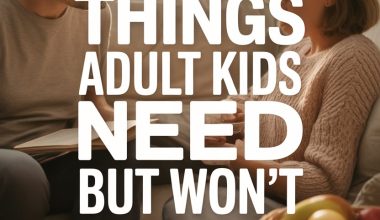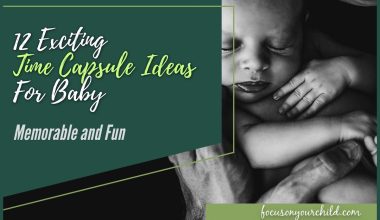If a parent gets burnt out in a forest but nobody’s around to hear it, do they still crave a nap and a snack? Every parent, at some point, feels the heat of burnout licking at their heels.
We’re all scanning ourselves for the usual red flags: snapping at loved ones, sleepless nights, or that telltale urge to hide in the bathroom with a phone and a packet of biscuits.
Yet there’s a stealthier, sneakier sign of burnout that so many miss—the one that creeps in quietly, disguised as ‘just getting by.’
When the Spark Goes Missing
Forget the Instagrammable meltdowns or the meme-worthy chaos. The real canary in the coalmine? A creeping sense of emotional numbness.
You’re technically present—dishing up mac and cheese, nodding through stories about Minecraft—but inside, you’ve gone all beige.
The highs don’t feel as high, the lows just wash over you, and even your child’s giggle (which used to make your heart do gymnastics) barely registers.
It’s not that you don’t love your kids. You’d still leap in front of a runaway pram for them.
But when you find yourself moving through the motions, wondering when you actually last felt excited, or proud, or even annoyed—well, that’s the silent sign.
Many call it “parental depersonalisation,” which sounds like something out of a sci-fi flick, but it’s real.
Research from the University of Quebec points out that parental burnout isn’t always about exhaustion or rage; sometimes, it’s about feeling emotionally distant from your own children. (Here’s the study on emotional distancing, if you want the receipts.)
Why Does It Fly Under the Radar?
Emotional numbness doesn’t have the drama of a full-scale tantrum (parental or child—take your pick). It’s quiet, almost polite. Everyone expects parents to be tired, overwhelmed, or frazzled.
But emotionally checked out? That feels embarrassing to admit—like you’re failing at the one thing you’re supposed to care about most.
Plus, who has time for introspection while fishing Lego out of the loo?
The Subtle Clues You’re Missing
Let’s get specific. Emotional numbness as a burnout sign isn’t usually announced by a marching band, but by these sneaky changes:
- You start living on autopilot. Morning routine, school run, dinner—rinse, repeat. Everything’s a checklist, not a moment.
- You feel like a bystander in family fun. The kids are shrieking with laughter, the dog’s eating crayons, and you’re… scrolling. Numbly.
- Achievements and milestones barely move the needle. Lost a tooth? Won a prize? Someone painted the cat? Meh.
- You’re grumpier than usual, but not quite sure why. It’s like someone swapped your patience for a bag of marbles.
- You daydream about running away to a cabin, but not in a whimsical, Eat Pray Love way—in a “can I please just stare at a wall?” way.
Sound familiar? That’s not just fatigue. That’s your brain’s way of protecting itself from chronic overload.
Why Emotional Numbness Matters
Emotional distance becomes a problem when it lingers. Kids are little emotional barometers; they notice when you’re physically there but mentally gone fishing.
Over time, it can erode connection, making everyone feel more isolated—yes, even the dog.
Studies like this cross-cultural parental burnout survey show that burnout isn’t just a phase; it can lead to more serious issues, like depression or anxiety, both for parents and their kids.
It’s a bit like ignoring the oil light on your car—you might get away with it for a while, but eventually, things go clunk.
How Did We Get Here?
Parents are juggling flaming swords these days: work (or job-hunting), relationships, never-ending laundry, and the pressure to make every moment magical (cheers, Pinterest).
Add a pandemic, cost-of-living crunch, or lack of community support, and you’ve got a perfect storm.
Many parents, especially mums, tend to put everyone else’s needs first, treating their own as an optional extra. Dad guilt is real, too, especially for those who feel they should be “doing it all.”
The trouble is, when you’re always pouring from your own already-empty cup, emotional numbness becomes inevitable.
Small Shifts That Make a Big Difference
Here’s the good news: You don’t need a two-week yoga retreat to find your spark again (though, if you have one on offer, grab it with both hands).
Tiny, realistic changes can help shift you out of autopilot and back into connection.
Find One Meaningful Moment
Instead of aiming for “quality time” that looks like an advert, focus on just one genuine moment today. That might be a proper cuddle, a shared joke, or three minutes of actual eye contact during bedtime stories.
The goal isn’t more time; it’s more presence.
Set the Bar Lower (No, Lower)
Comparison is the thief of joy, and also the creator of burnout. Try to notice when your inner critic is measuring your parenting against someone else’s highlight reel. Then, imagine lowering your standards until they’re somewhere near your ankles.
Your kids want you, not perfection.
Phone-Free Pockets
Screens help us escape, but they can make numbness worse. Experiment with a phone-free half hour each day. Stack it with something simple—tea and a biscuit while your child tells you about dinosaurs, or even a quiet walk with the pram.
The magic isn’t in the activity; it’s in your attention.
Tell Someone You Trust
Shame thrives in silence. Admitting you feel emotionally flat to a partner, friend, or even a GP can make it feel less like a personal failing, and more like what it is: a very human response to chronic stress.
You might be surprised by how many parents have felt the same.
Prioritize Sleep Like a Toddler Prioritizes Snacks
No, you probably won’t get eight hours straight (unless you live in a parallel universe). But even a small improvement—going to bed half an hour earlier, or making your room a little more relaxing—can help your brain recover from the daily onslaught.
There’s science behind this, too: Regular sleep boosts emotional resilience. Need proof? Here’s some from the Sleep Foundation.
The ‘Not-To-Do’ List
Everyone loves a to-do list. Try making a not-to-do list for once. Cross off one unnecessary obligation or expectation.
No, you don’t need to bake cupcakes from scratch for the class party. There are perfectly good ones at the shop, and the kids will eat the icing first anyway.
When to Get Extra Help
If you’ve hit a point where numbness is lasting weeks, your mood is constantly low, or you’re feeling hopeless, reaching out for professional support is the bravest move you can make—not a sign of failure.
GP appointments, online therapy apps (like BetterHelp), or parenting support lines are all valid ways to get back on track.
Mental health is just as important as the school run. Actually, it’s more important, because nobody ends up wearing yesterday’s pants on their head if you miss a school pickup.
Still You, Just Tired
Here’s the secret: Feeling emotionally numb doesn’t mean you’re a bad parent. It means you’re human.
You’re still the same loving, hopeful, gloriously imperfect person your kids adore—even if you’re currently doing your best impression of a robot on low battery.
Burnout whispers, rather than shouts. Catching it early, especially this hidden sign, is half the battle won.
The world doesn’t need more super-parents; it needs more real ones, willing to admit they need a breather sometimes.
So, if you’re reading this with one eye on the clock and another on your third cup of coffee—take a gentle breath. Maybe today’s the day you swap autopilot for a single, imperfect, wonderful pause.
And if you’re waiting for permission to care for yourself, here it is. Your spark matters, too.





